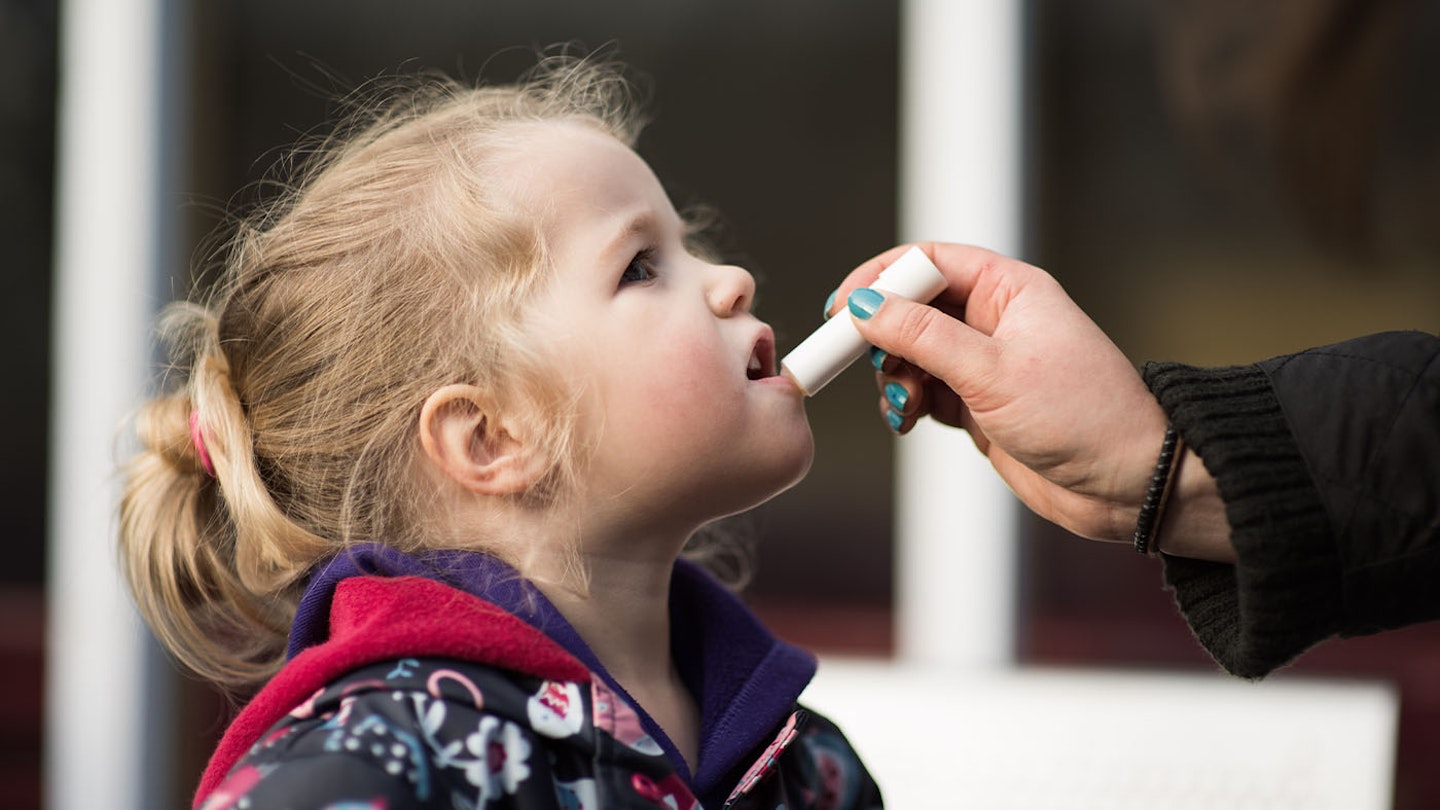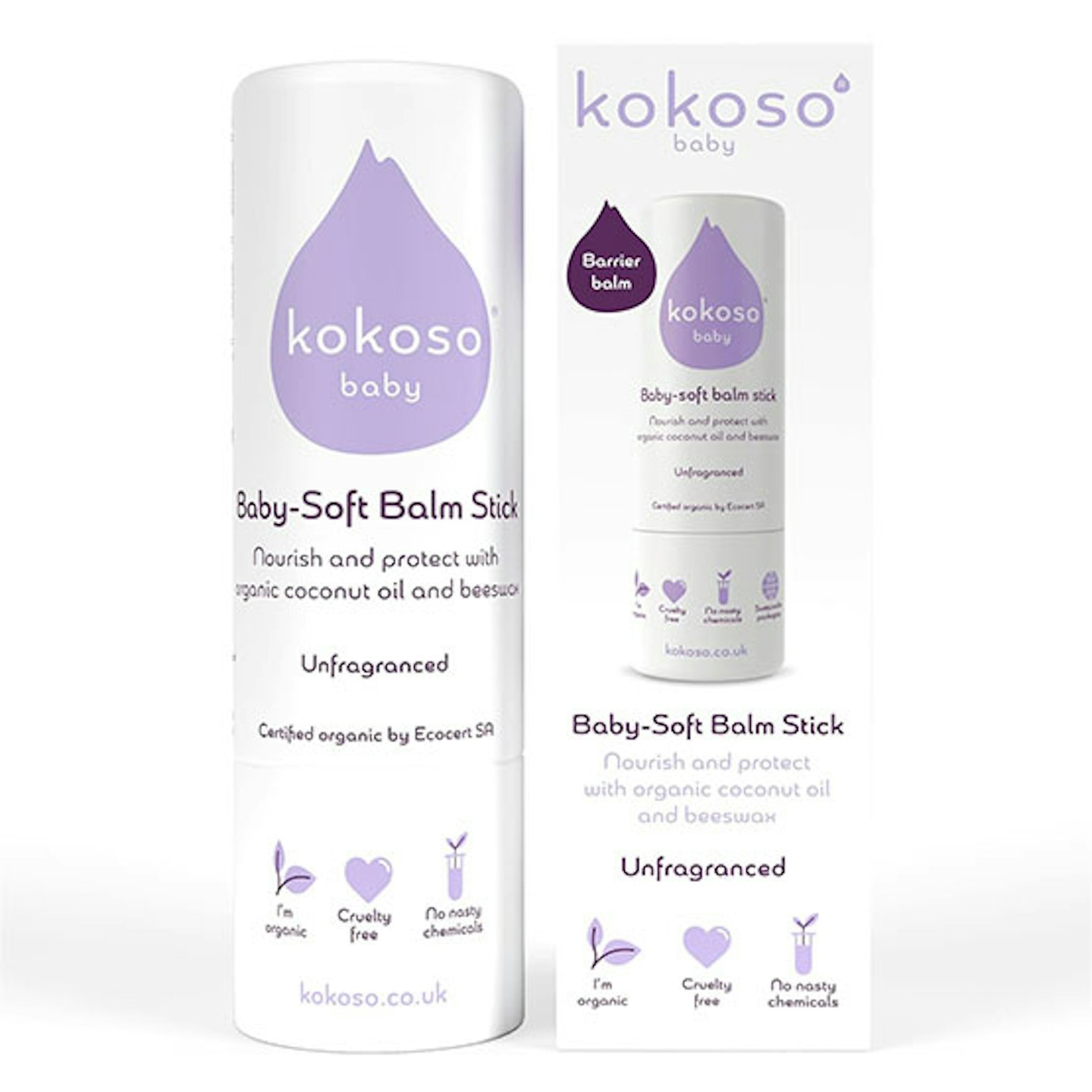Just like our own lips can feel like the Sahara at times, our tots lips can also feel sore and dry, especially in the winter when the outside air is crisp and cold and the inside air is very drying thanks to the central heating. That's why many of us parents like to keep our little ones lips topped up with the best toddler lip balm to sooth any soreness and moisturise the dry spots.
You may be wondering, is it really necessary for my toddler to wear lip balm? But according to Dr. Laura Geige, GDC registered dentist and cosmetic dermatologist, it provides a brilliant barrier to protect their skin. "Toddlers' skin, including their lips, is much more delicate than adults', making it more susceptible to dryness and chapping, especially in cold or windy conditions, or if they're prone to licking their lips. A gentle, hydrating lip balm can provide a protective barrier and prevent discomfort."
Like with anything you put on your child's skin, you want to make sure its safe and won't just add fuel to the fire. That's why all these lip balms contain natural ingredients that won't harm their sensitive skin.
The best toddler lip balm at a glance
Best toddler lip balm overall: Kiehl's Baby Lip Balm – Available from Kiehl's
Best for multiple uses: My Little Coco My Little Everything Balm – Available from Boots
Best toddler lip balm for sun protection: Moogoo Natural Lip Balm – Available from Holland & Barrett
"Look for lip balms with natural, moisturising ingredients such as coconut oil, shea butter, or beeswax. Avoid fragrances, dyes, and essential oils, as these can be irritating or cause allergic reactions in sensitive skin. Products labeled as suitable for sensitive skin or dermatologically tested are often a good choice." Says Laura.
The best toddler lip balm to buy
Best toddler lip balm overall
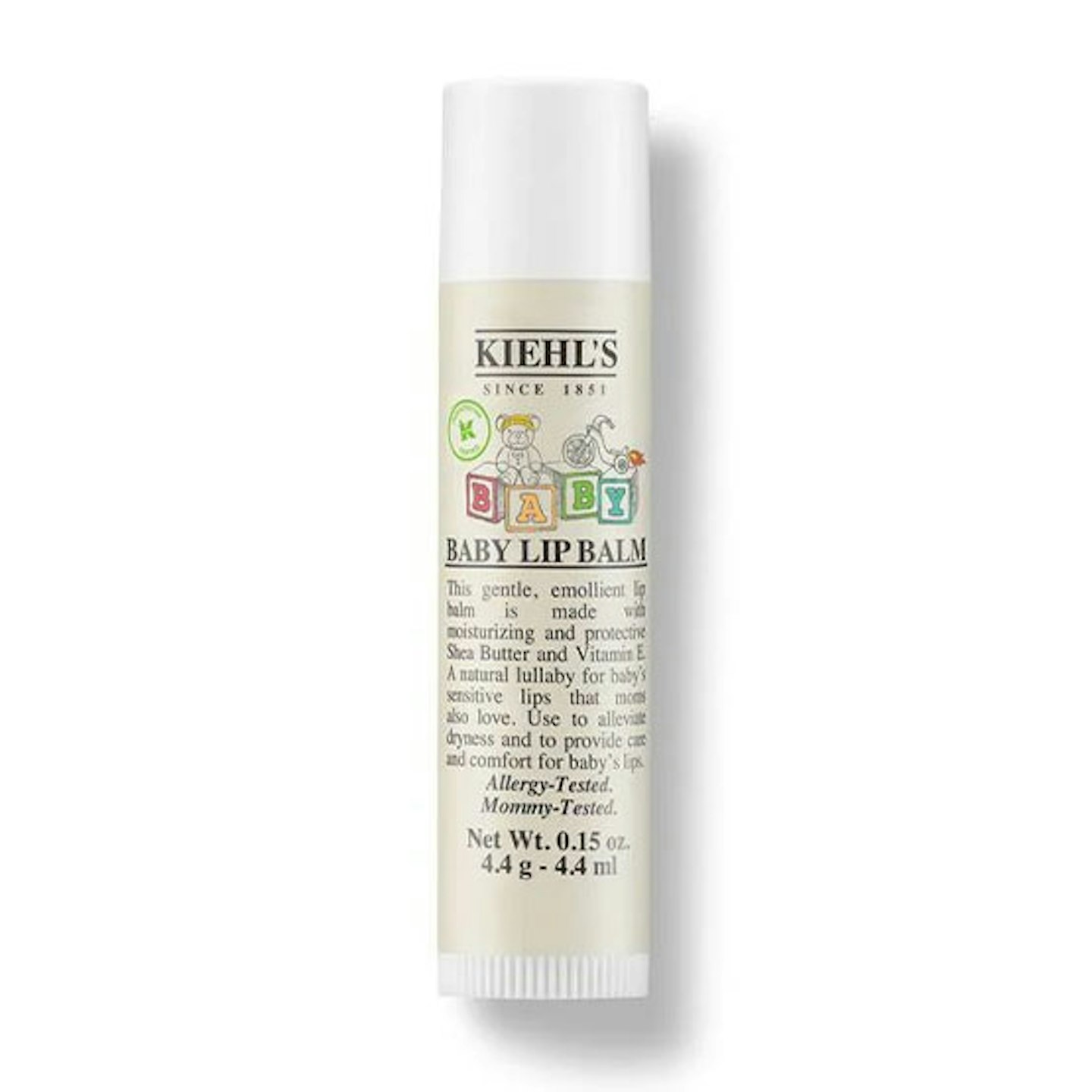
www.kiehls.co.uk
Designed specifically for babies and toddlers, this gentle lip balm works to comfort and moisturise dry lips and is both paediatrician and dermatologist tested. Suitable for babies, infants and children, it's formulated with Shea Butter and Vitamin E and in a consumer test; 96% of mothers reported that their baby's skin appeared moisturised and hydrated after application.
Review: "Excellent Lip Balm! Love that it doesn't feel sticky and has no smell, which is nice. Love this product!"
Pros
- Paediatrician and dermatologist tested
- Allergy tested
Cons
- You don't get much product in the tube
Best for toddlers with allergies
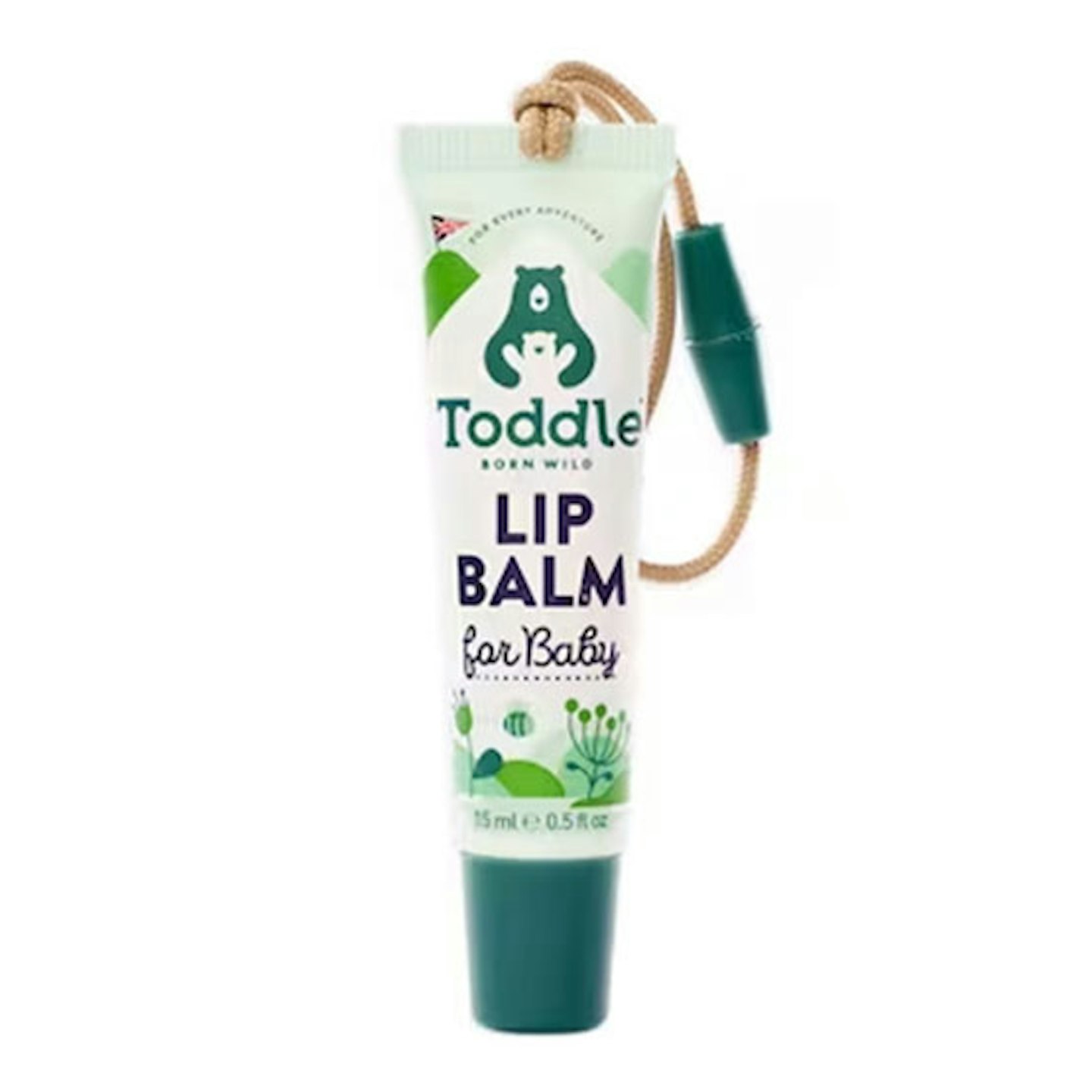
www.hollandandbarrett.com
This toddler lip and face balm uses only natural ingredients to help protect against chapped lips, dribble rash. The fully vegan formula works to boost moisture using an all-natural formulation of Shea Jojoba, Coconut oil and Vitamin E. This product also featured on Dragon's Den!
Review: “This lip balm is great! It keeps my baby's lips from getting dry.”
Pros
- Fully natural ingredients
- Comes with a handy key ring
Cons
- Doesn't stand up on its own
Best for multiple uses
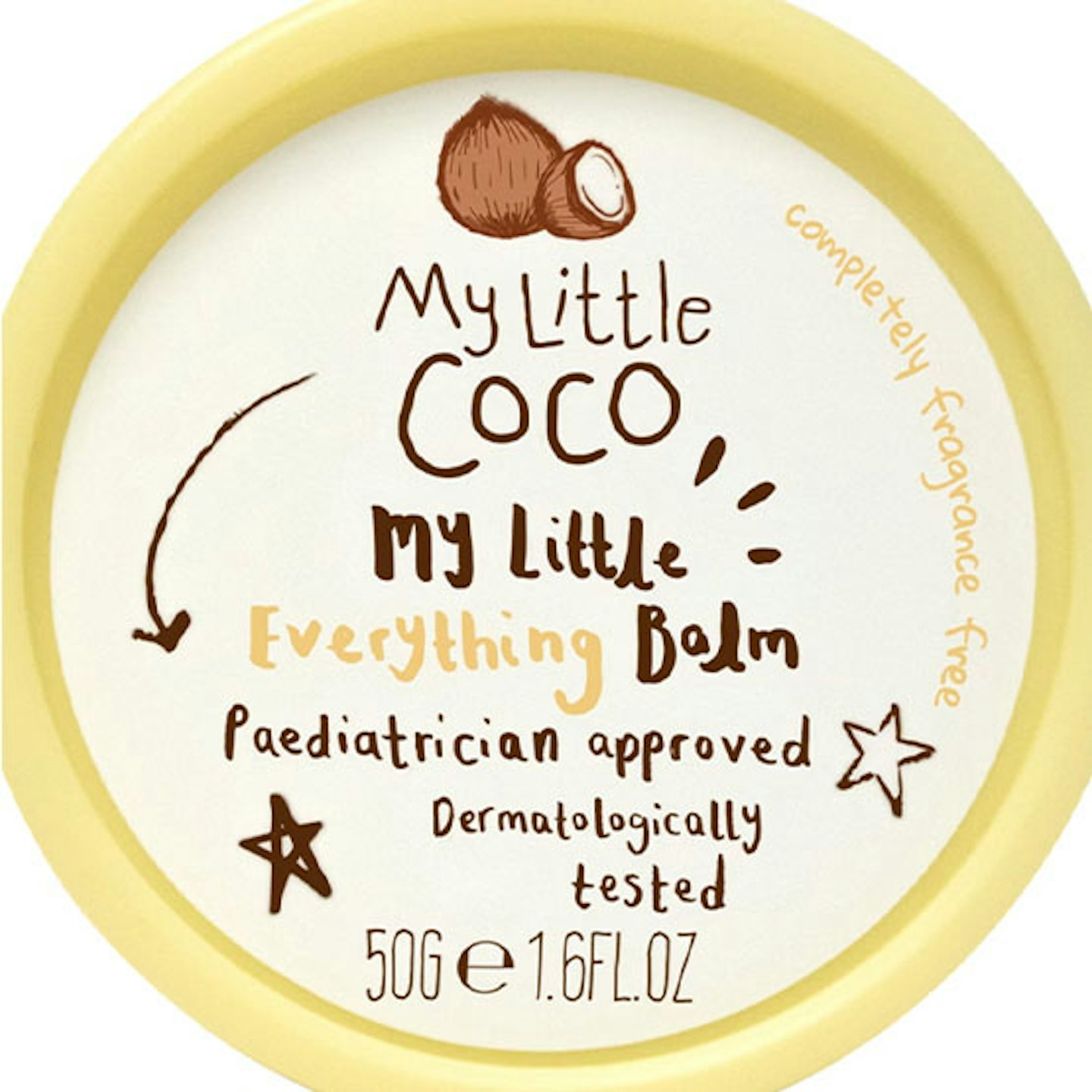
www.boots.com
If you're already a fan of Rochelle Humes My Little Coco range of baby products then we think you'll love this multipurpose balm for baby. Enriched with nourishing organic coconut oil and beautifully scented with soft creamy coconut, it's dermatologically tested and paediatrician approved with no parabens, sulphates or dyes making it suitable for sensitive skin.
Review: "I love the coconut smell and the balm is so moisturising it's a great product to keep in change/ hand bag for quick on the go moisture"
Pros
- Naturally scented
- Vegan and cruelty free
- Multiple uses
Cons
- Not as easy to apply as a lip stick style applicator
Developed by midwives
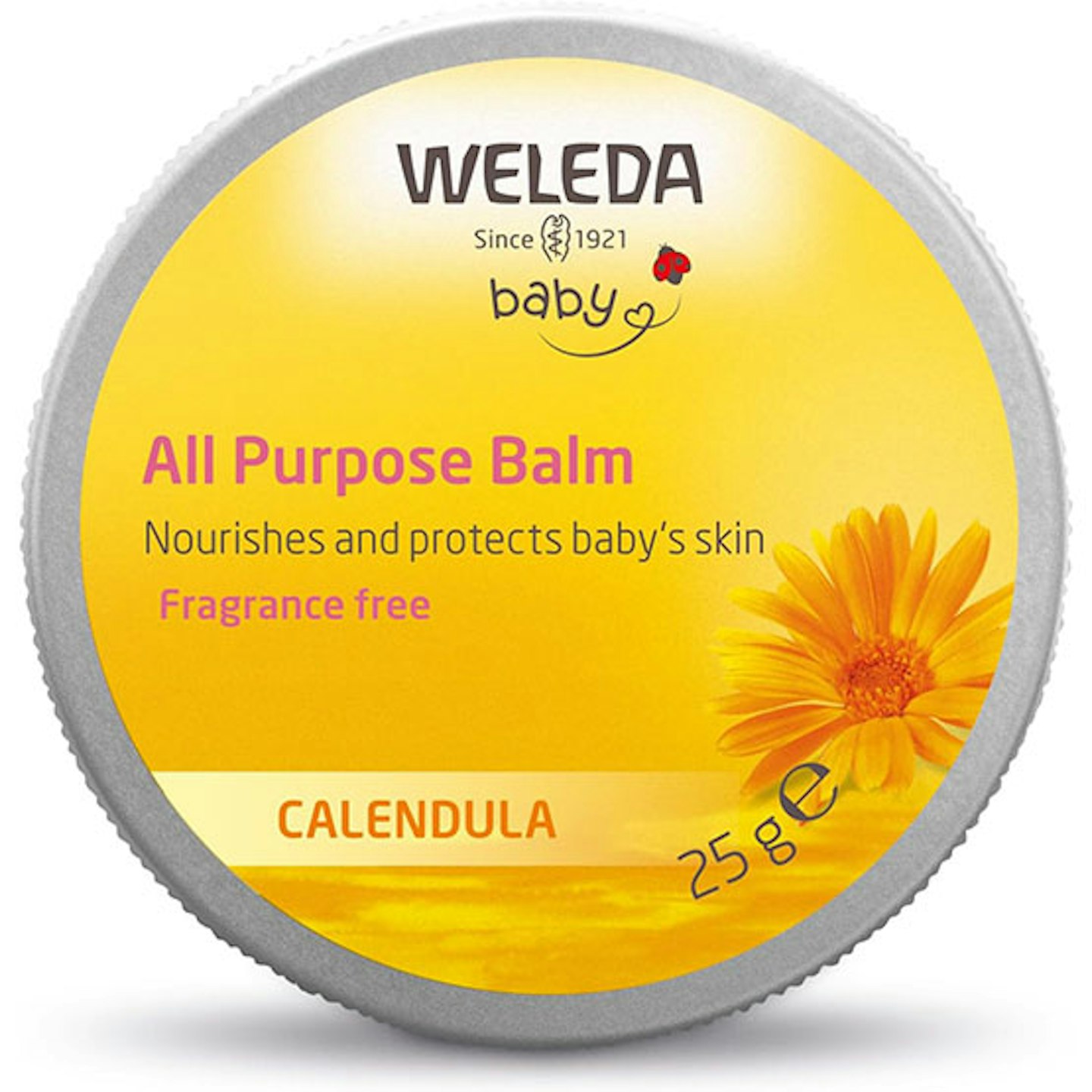
Weleda is a brand us M&B mums are huge fans of, both for ourselves and baby and their all purpose balm is one of our favourites. Developed by midwives and pharmacists, it's designed to nourish dry patches and sooth chapped or dry lips on both babies and adults. Made using organic sunflower and avocado oils, luxurious cocoa seed butter, protective candelilla and skin-caring calendula, the formula has been dermatologically tested for suitability on highly sensitive skin.
Review: "Bought this for my 10 month old daughter and it’s been a great product. The backs of her knees and face have been very dry and red, this has literally took it all away after only a few day’s of use."
Pros
- Fragrance free
- Minimal packaging
Cons
- Some parents found it difficult to spread
Best packaging
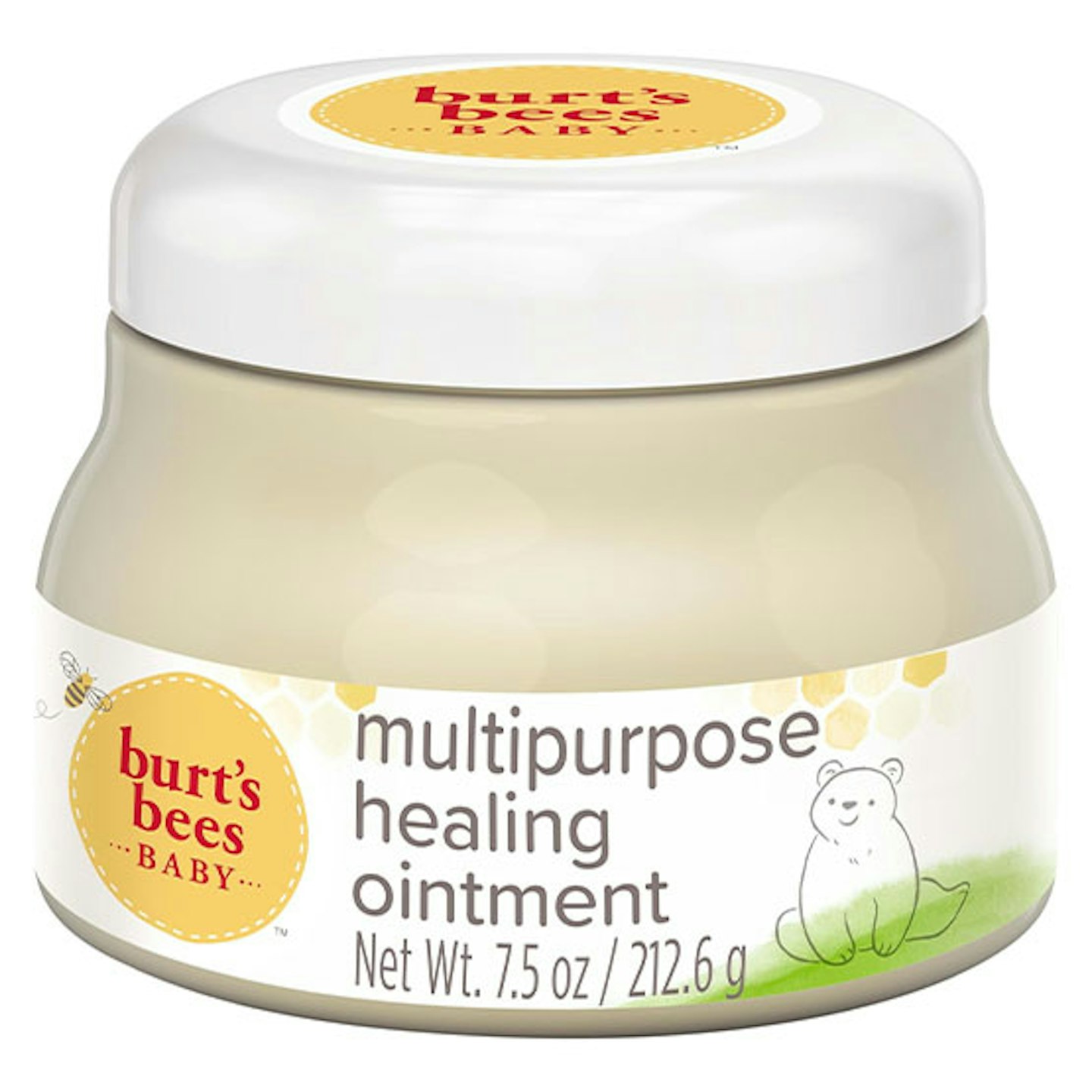
While this Burt's Bees ointment might be designed for combatting nappy rashes and dry patches on their body, it's also suitable to use on baby's face for dry and chapped lips. Working to form a protective barrier against dryness. It's paediatrician-tested to make sure it's suitable for everyday use.
Review: "I love this product! It's so gentle on my babies skin, smells divine and works. We've been using it for about a month now and dry skin clears within hours of using the ointment. Would highly recommend it."
Pros
- Paediatrician tested
- Recyclable packaging
- Natural fragrance
Cons
- Some parents didn't like the scent
Best toddler lip balm gift
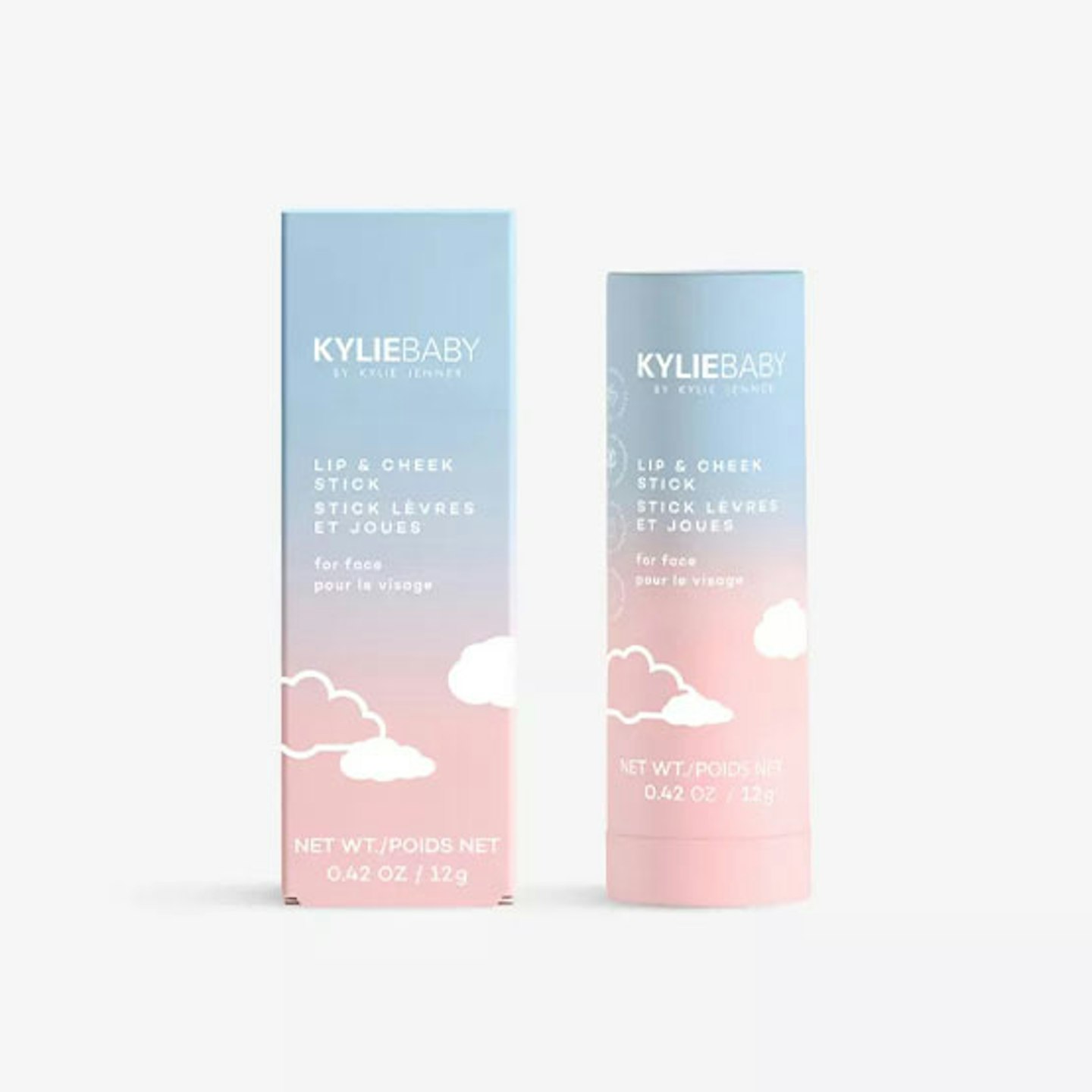
kyliejennercosmetics.co.uk
Kardashian fans will no doubt be familiar with Kylie Jenner's baby skincare line, Kylie Baby. This lip and cheek stick is designed for baby's sensitive skin and is formulated with natural shea butter, cocoa seed butter, and coconut and olive oils. Designed for everyday use, it's made to sooth dehydrated lips and skin around the face for long-lasting comfort.
Review: "The lip and cheek stick is amazing! No more cracks! It’s fits perfectly in her little pocket and is easy to apply leaving a glisten and glow! She puts it on two times a day! Her lips are smoother and her face is shiny!"
Pros
- Easy to apply
- Vegan formula
Cons
- Some parents found the formula too greasy
Easiest to apply
This multipurpose stick is made from 100% natural ingredients to nourish and protect your little one’s skin. Designed to create a protective barrier against the elements, it nourishes dry skin and soothes irritation if your little one is suffering from a cold, dribble or teething. The easy-to-use twist-up balm stick allows you to apply in an instant.
Review: "Protects my daughters lips when we’re out in cold weather and really does help heal chapped skin too. Looks like it’ll last a long time so definitely worth it."
Pros
- Dermatologically tested
- Works for a range of skin complaints
Cons
- Parents found it wasn't as effective on eczema compared to other products
Best toddler lip balm for sun protection
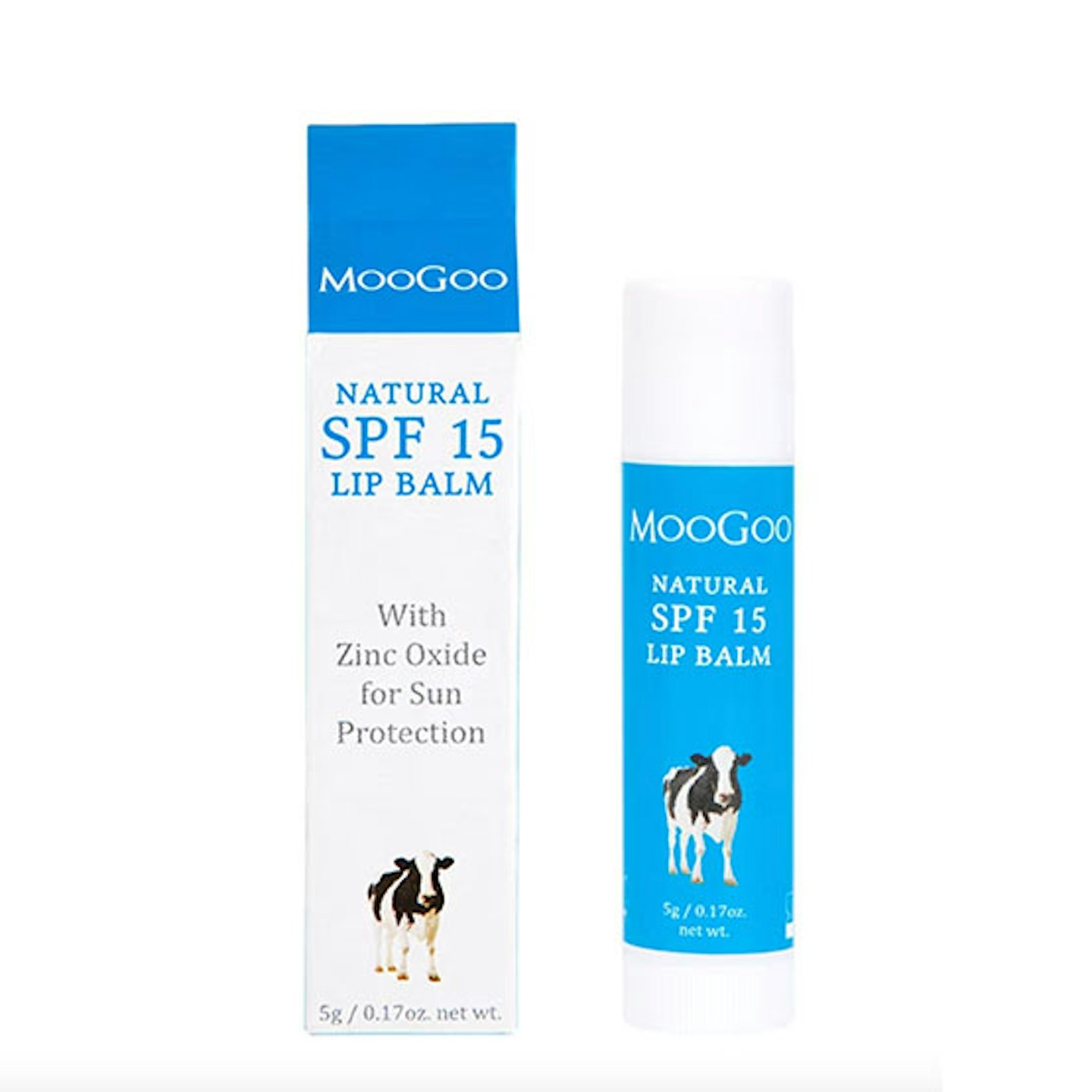
www.hollandandbarrett.com
Our favourite thing about these lip balms is that they are safe to be eaten which we know is going to happen with toddlers. And with SPF 15, it also provides some protection against the sun making it ideal for wearing on brighter days. Made using nourishing, natural ingredients, this balm works to keep lips healthy and cared for.
Review: “Excellent lip balm I’ve finally found one without aloe Vera in it! And no nasty additives. Highly recommend my sore lips are finally recovering.”
Pros
- Edible
- SPF 15
Cons
- Some found it quite sticky
Are lip balms safe for toddlers?
Dr Laura says lip balms can be safe for toddlers. "Provided they are formulated with safe, non-toxic ingredients, they should be safe for toddlers. It's critical to choose products specifically designed for babies or toddlers or those labeled as hypoallergenic and free from harmful chemicals."
Before applying any sort of lip balm to your toddlers lips, you should read the age it's safe to use from as well as the ingredients list to make sure there's nothing in there that could harm your little one.
And while it's perfectly safe for you to use your child's lip balm, you should never apply lip balms formulated for adult skin to delicate toddler or baby skin as it could result in a nasty reaction or irritation as these may be too harsh for their soft skin.
If in doubt, check with your pharmacist or GP and they'll be able to advise the best course of action for your child's sore lips.
What ingredients should we avoid applying to toddler skin?
Dr Laura says there are certain ingredients that should be avoided in toddler lip balms. These include: salicylic acid, camphor, phenol, and fragrances, as they can be too harsh for their delicate skin. "Always read labels carefully and opt for products with simple, natural ingredients." She says.
How much lip balm should you use and how often should you apply it?
"A thin layer of lip balm applied a few times a day is sufficient. Reapply after eating or drinking, or if your child is going to be exposed to harsh weather." Says Dr Laura. "Over-application is unnecessary and can lead to them ingesting more of the product than is ideal." She adds.
Again, it's important to check the instructions on how much and how often to apply but generally, you only really need to apply a very thin layer over their lips on the dry area when you notice their lips are dry.
What are the best ways to avoid your toddler getting dry or chapped lips?
One of the best ways to avoid chapped lips is to keep their lips nice and moisturised with a toddler lip balm.
Another way to avoid dry lips is by making sure your little one is staying hydrated by drinking plenty of water throughout the day. You know they're getting enough if their urine is clear and scent free. Keeping the lips hydrated will also result in less lip licking which can also cause lip dryness. "Apply a safe lip balm before heading out in cold or windy weather and also, discourage the habit of lip licking, which can worsen dry lips." Says Laura.
As well as keeping your little one hydrated, Dr Laura says using a humidifier in their room can beneficial. "Humidifiers in their room help to maintain air moisture."
Are dry lips a symptom of anything?
Dry lips are normally nothing to worry about and they're very common, but if you do notice your child's lips are getting worse or if the dryness isn't clearing up with a lip balm and plenty of water, then it's worth speaking to your GP to make sure there's no underlying issues, baby eczema or skin reactions to a certain ingredient going on.
Dr Laura says, "While dry lips are commonly due to environmental factors or mild dehydration, persistent dryness can sometimes indicate an underlying issue, such as vitamin deficiencies or more serious conditions like Kawasaki disease. If dry lips are accompanied by other symptoms or do not improve with care, consult a healthcare provider."
What happens if my toddler eats their lip balm?
It's normal for kids to lick their lips so you may be wondering what will happen if they ingest their lip balm. The good news is, if you're using an all-natural toddler formulated lip balm, they should be perfectly safe, however, there are edible lip balm alternatives you may want to consider.
"Most lip balms, especially those formulated for children, use ingredients that are generally recognised as safe." Says Dr Laura. "However, ingesting large amounts can cause stomach discomfort or diarrhoea. If your child eats lip balm, monitor for any adverse reactions and consult a healthcare provider if you have concerns."
Should you continue using a lip balm once the dry skin has cleared?
"Once the dryness has resolved, you can reduce the frequency of application." Says Dr Laura. "However, in dry or cold conditions, continuing to use lip balm can help prevent the recurrence of chapped lips. Listen to your child's skin needs, and adjust as necessary. Remember, the gentle approach is the best approach when it comes to caring for our toddlers' delicate skin. Choosing the right products and adopting preventative measures can ensure their comfort and health." She adds.
About the expert:
Dr. Laura Geige is a GDC registered dentist, aesthetician with level 7 qualification in medical aesthetics, an assessor, clinical trainer, cosmetic dermatology and facials specialist. Driven by a profound understanding of skincare, she has significantly contributed to the development of product portfolios for beauty brands through her adept diagnosis and treatment of various skin conditions.
Lorna White is the Senior Digital Writer for Mother&Baby. After running the Yours magazine website, specialising in content about caring for kids and grandchildren, Lorna brought her expertise to Mother&Baby in 2020. She has a keen interest in a range of topics from potty training and nutrition to baby names and early development and has a wide range of experienced medical experts and professionals at her fingertips. In her spare time, she enjoys spending time with her two young sisters, dog walking and enjoying the outdoors with her family.
